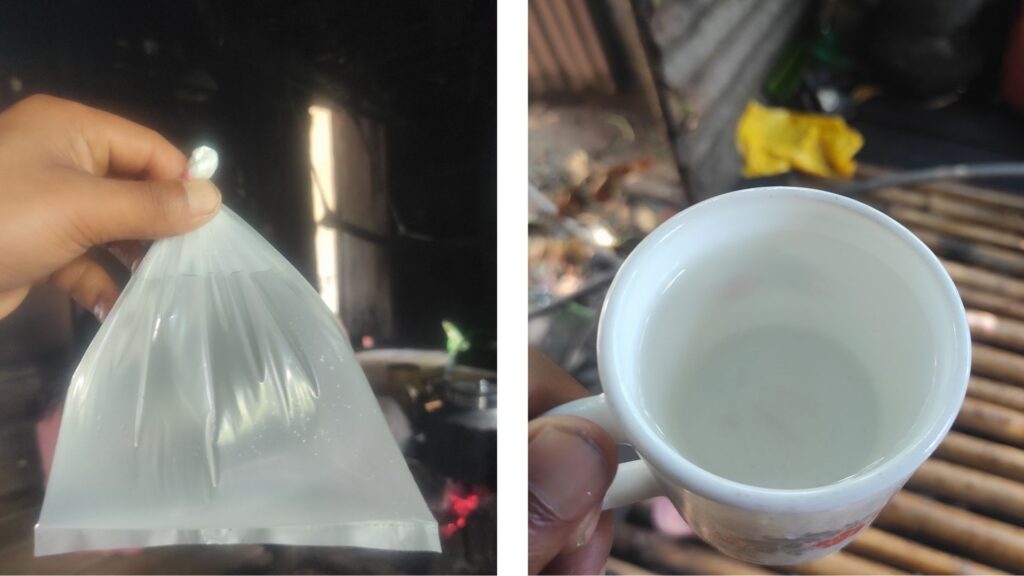“Alcoholic fermentation, when done right, is one of the purest expressions of culture, where the land, people, and time come together in every drop,” Michael Pollan, author of Cooked and The Omnivore’s Dilemma, really picked the nerve. It’s a statement that resonates deeply, especially when you think about the North East of India, a region where fermentation isn’t just a process—it’s a living, breathing tradition passed down through generations.
In Meghalaya, where the air is thick with mist and the mountains hum with ancient rhythms, fermentation is a tradition as old as the hills themselves. Known for its vibrant tribes and rich heritage, the state offers a glimpse into an age-old craft that gives life to unique local brews. These drinks are more than just alcohol—they are a celebration of the land, a tribute to ancestors, a statement of identity and autonomy, and a powerful way to unite communities through shared rituals and stories. How? Let’s learn!

For the Khasi, Garo, and Jaintia tribes of Meghalaya, the act of brewing Kyat has long been a symbol of cultural survival and autonomy. During the British colonial era, the British colonialists, with their view of “civilizing” indigenous populations, attempted to replace local alcoholic beverages like Kyat with European-style spirits—rum, whiskey, and wine—aiming to control and regulate these drinks. The push to introduce these foreign spirits was not just about alcohol consumption; it was a tool of colonial domination, seeking to supplant indigenous customs with standardized, taxable alcohol that could be controlled and regulated in their benefit.
But for the Khasi and Garo people, Kyat was far more than a drink—it was an intrinsic part of their identity, their spirituality, and their social fabric. Brewed at home and consumed during key life events like weddings, harvest festivals, and rites of passage, Kyat was woven into the rituals and celebrations of the community. To replace it with European liquor was seen not just as a disruption of their diets, but an assault on their cultural heritage and their right to self-define.
Amid colonial pressures, the indigenous communities of Meghalaya refused to relinquish their customs, with brewing Kyat becoming a steadfast tradition passed down through generations. This act of fermenting rice beer in the quiet of home kitchens became a subtle yet powerful form of resistance—each batch brewed, each sip shared, was a direct challenge to colonial authority, a declaration that these communities would not be molded by foreign influences. The British, however, sought to impose their own alcohol regulations, pushing European liquors and imposing taxes, licenses, and even criminalizing traditional brewing. Despite raids, women, the traditional brewers of Kyat, adapted their methods but never compromised on their heritage, making the act of brewing a defiant reaffirmation of self-sufficiency and cultural sovereignty. From that, to today – with the state’s Chief Ministers sharing rounds of Kyat with visiting diplomats as a lever for soft diplomacy… we can’t help but reckon with Carlos Saladrigas who said, “Food is not just fuel; it’s information. It’s communication between us and the world. The politics of food is the politics of culture, identity, and power.”
Brewing Kyat is both a science and an art, with careful attention to timing, temperature, and the specific wild yeast strains used for fermentation. Traditionally passed down through generations, it’s mainly brewed by women, who preserve the techniques that make it special. The beauty of Kyat lies in its variability—each batch reflects the local environment, from the temperature to the wild yeasts unique to each household. Unlike mass-produced drinks, every glass of Kyat tells the story of its place and the people who made it. So, if your friend traveled with us in May and you in December, and you both tasted Kyat, don’t be surprised if the flavors are a bit different.
The importance of women in this process is also symbolic. Brewing Kyat is a practice passed down from mother to daughter, ensuring that the knowledge remains intact as a vehicle for community bonding. They are the custodians of the drink’s authenticity and legacy, and in many ways, their role in brewing Kyat can reflect the broader anthropological view of women as the preservers of cultural heritage.
In Meghalaya, Kyat is far more than just a drink— okay, we’ve established that, but it’s also a gateway to folklore and spiritual connections. One tale speaks of forest spirits who passed down the secrets of brewing in absence of refrigeration and modern techniques, linking the community to the land and nature, and brewing Kyat isn’t just a task; it’s a ritual that honors these spirits. Some believe Kyat can even revive the dead—families brew a special batch during mourning to invite spirits back for ceremonies. There’s also the belief that brewing Kyat during harvest can bring rain and ensure a bountiful season. But it’s not without its warnings—ghosts of bad brewers are said to punish those who don’t follow tradition, turning the drink undrinkable. In many homes, Kyat is seen as a gift from ancestors, bringing their blessings, and strengthening the bond between generations.

So whenever you’re in Meghalaya and handed a glass of Kyat, remember—you’re sipping on autonomy, spirituality, and identity passed down through generations. In a world that moves fast, take a moment to savor not just the flavor, but the rich stories, spirit, and culture in every drop. How does one do that?
In Meghalaya, when offered Kyat, there are a few culturally appropriate ways to enjoy the drink, as it is deeply tied to tradition and ritual.

Equal parts policy wonk and wanderlust junkie, Kavya brings together her training in environmental economics and political science with an enduring curiosity about how the world works — and how it could work better. By day, she’s a public health researcher and advocate, working at the intersection of people, systems, and the planet.
Off the clock? She’s a storyteller, active rester, and cat mama.